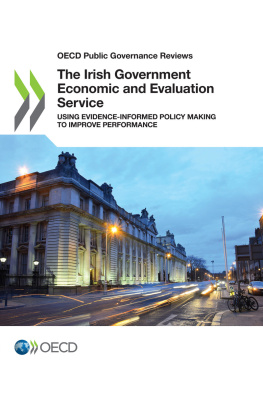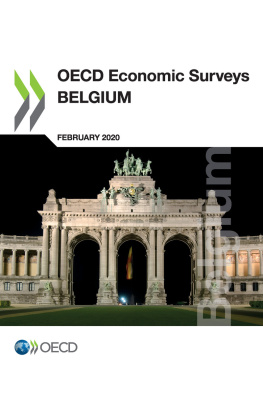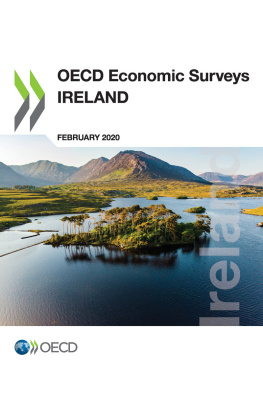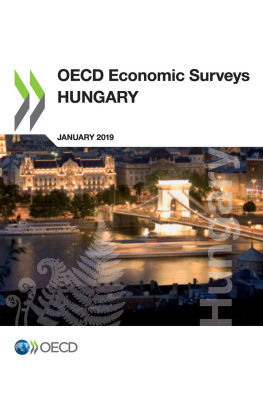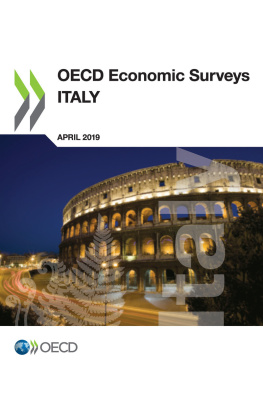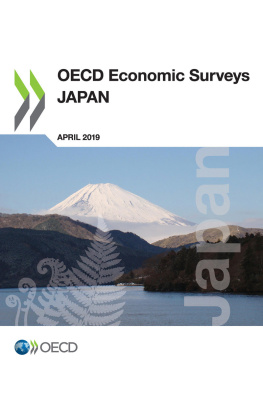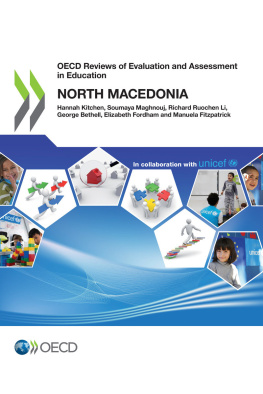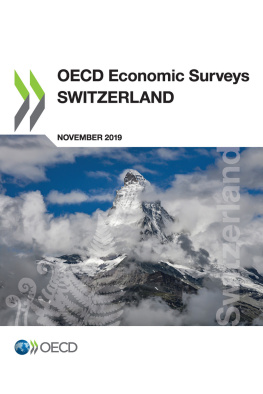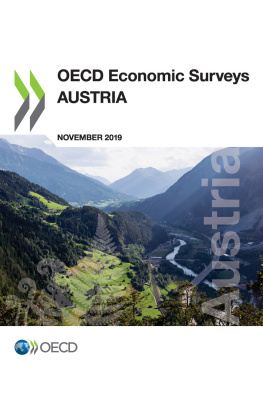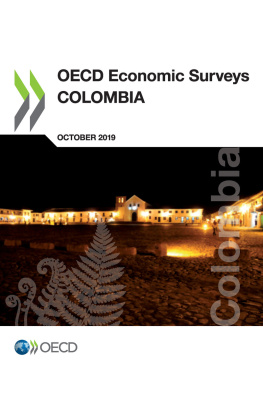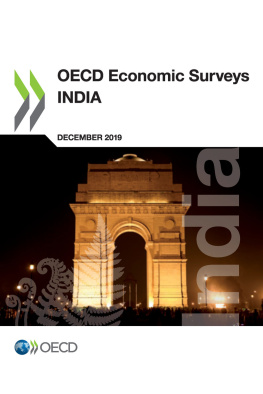OECD - The Irish Government Economic and Evaluation Service
Here you can read online OECD - The Irish Government Economic and Evaluation Service full text of the book (entire story) in english for free. Download pdf and epub, get meaning, cover and reviews about this ebook. year: 2020, publisher: OECD Publishing, genre: Politics. Description of the work, (preface) as well as reviews are available. Best literature library LitArk.com created for fans of good reading and offers a wide selection of genres:
Romance novel
Science fiction
Adventure
Detective
Science
History
Home and family
Prose
Art
Politics
Computer
Non-fiction
Religion
Business
Children
Humor
Choose a favorite category and find really read worthwhile books. Enjoy immersion in the world of imagination, feel the emotions of the characters or learn something new for yourself, make an fascinating discovery.
The Irish Government Economic and Evaluation Service: summary, description and annotation
We offer to read an annotation, description, summary or preface (depends on what the author of the book "The Irish Government Economic and Evaluation Service" wrote himself). If you haven't found the necessary information about the book — write in the comments, we will try to find it.
OECD: author's other books
Who wrote The Irish Government Economic and Evaluation Service? Find out the surname, the name of the author of the book and a list of all author's works by series.
The Irish Government Economic and Evaluation Service — read online for free the complete book (whole text) full work
Below is the text of the book, divided by pages. System saving the place of the last page read, allows you to conveniently read the book "The Irish Government Economic and Evaluation Service" online for free, without having to search again every time where you left off. Put a bookmark, and you can go to the page where you finished reading at any time.
Font size:
Interval:
Bookmark:
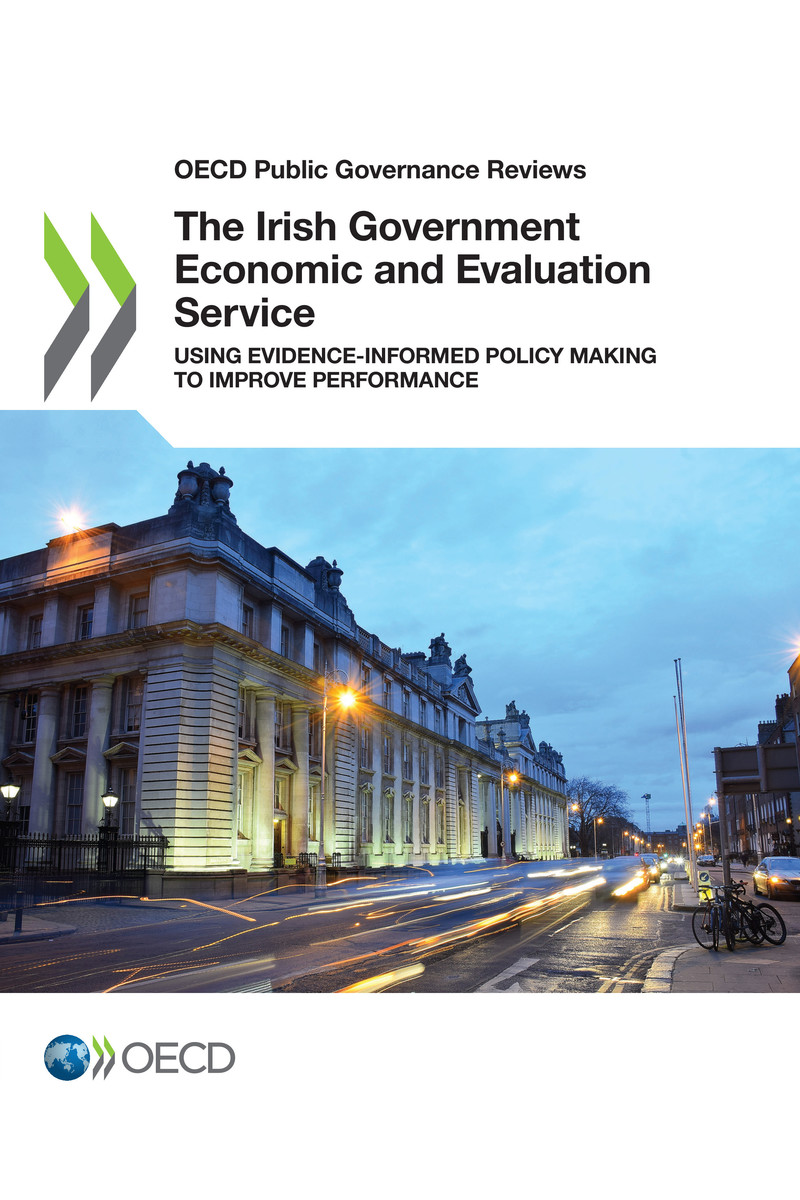
OECD (2020), The Irish Government Economic and Evaluation Service: Using Evidence-Informed Policy Making to Improve Performance , OECD Public Governance Reviews, OECD Publishing, Paris, https://doi.org/10.1787/cdda3cb0-en .
Governments are facing growing pressures to deliver public services to citizens and businesses in a complex, fragmented and unpredictable environment. Evidence-informed policy making has a crucial role to play in designing, implementing and delivering better public policies, and thus the potential to improve public sector performance. However, in reality, connecting evidence and policy making remains a constant challenge. Institutional gaps, insufficient skills and capacity, and a lack of an effective knowledge brokering function are common barriers to the use of evidence in policy making. In response to these challenges, many governments are strengthening the evidence ecosystem by investing in strategies to build capacity for policy design and ex ante and ex post evaluation.
The Irish Government Economic and Evaluation Service (IGEES) is an integrated cross-government service that supports better policy formulation and implementation across the civil service with economic and analytical skills. The purpose of IGEES is to expand the civil services analytical capacities for evidence-informed policy making. IGEES has strengthened the analytical capacity across ministries and the Irish Civil Service as a whole. IGEES has built a robust evidence base for better policy and decision making.
This OECD study analyses the institutional features and governance of IGEES in light of international best practices, offering an analysis of its processes, tools and people management. The studys recommendations will inform IGEES Medium-Term Strategy for 2020-23. It was undertaken at the invitation of the Irish Department of Public Expenditure and Reform, which supports the IGEES network, with a view to strengthening evidence-informed policy making in Ireland. At the OECD, this work helps build a comparative understanding of countries evaluation systems and capacities to promote evidence-informed policy making.
This study is based on the analysis of data collected through qualitative interviews in Ireland with senior civil servants involved in IGEES and related areas of the Department of Expenditure and Reform, current IGEES members based in ministries, and policy officials in ministries. Data was also collected through a questionnaire answered by government departments. Finally, the study draws on examples of existing international practices from OECD work on evidence-informed policymaking and other relevant areas.
This review provides a better understanding of the achievements and remaining challenges for IGEES in putting evidence-informed policy making into action. Linking evidence to ways in which governments can improve performance and better serve their citizens is a fundamental contribution of sound public governance.
This report was prepared in the OECD Directorate for Public Governance (GOV) under the leadership of Marcos Bonturi. It is part of the work programme of the Governance Reviews and Partnerships Division, headed by Martin Forst.
The report was drafted by Daniel Acquah, policy analyst at the OECD at the time of drafting, under the strategic direction of Stephane Jacobzone, Head of Unit for evidence, monitoring and policy evaluation. Anne Pauline de Cler contributed some sections and provided highly valuable research assistance. Editorial and production support was provided by Ciara Muller.
The authors are grateful to representatives from Irish government Departments and experts from the Irish Government Economic and Evaluation Service (IGEES) for their valuable contributions and effort to provide all relevant data and mobilise relevant stakeholders. In particular, the OECD would like to thank Jasmina Behan, Daniel OCallaghan and her colleagues at the Department of Public Expenditure and Reform (DPER) headed by Secretary General Robert Watt. The Secretariat would like to thank the respondents to questionnaires in 12 government departments, and the participants in the interviews that took place in Dublin in May and June 2019. These in-depth interviews were instrumental in further improving the OECDs understanding of the IGEES institutional context and governance. The Secretariat also wish to thank Ms. Francoise Maurel, Director of dissemination and regional action of INSEE (French National Institute of Statistics and Economic Studies) for her participation as a peer reviewer in the process.
The report received detailed and comprehensive feedback from Irish officials. Inside the Secretariat, the authors wish to acknowledge the feedback and contributions received from Jacob Arturo Rivera Perez, Benjamin Welby, Scherie Nicol, Andrew Blazey, and Bagrat Tunyan in the Public Governance Directorate.
The Irish Government Economic and Evaluation Services (IGEES) supports an integrated approach to policy formulation and implementation in the civil service based on economic and analytical skills. IGEES was created in March 2012 with the aim of expanding analytic capacities for evidence-informed policy making following the budgetary pressures created in the aftermath of the global financial crisis. IGEESs role was to build and extend capacity to achieve value-for-money in policy making across all government departments. The goal is to ensure that a range of public interventions and public expenditure decisions are informed by quality economic analysis and contribute to better outcomes for citizens. This is achieved by placing IGEES staff in all government departments, as well as through specific recruitment, learning and development processes. The IGEES launched a Medium-Term Strategy (MTS) for 2016-2019 to improve the quality of its output, increase the impact of policy analysis process and better inform the policy debate as well as to further develop IGEES as a whole-of-government service.
This OECD study looks at the key institutional features and governance of IGEES in light of international good practices, and offers an analysis of its processes, tools, people management and impact. It identifies current achievements, as well as remaining barriers.
Font size:
Interval:
Bookmark:
Similar books «The Irish Government Economic and Evaluation Service»
Look at similar books to The Irish Government Economic and Evaluation Service. We have selected literature similar in name and meaning in the hope of providing readers with more options to find new, interesting, not yet read works.
Discussion, reviews of the book The Irish Government Economic and Evaluation Service and just readers' own opinions. Leave your comments, write what you think about the work, its meaning or the main characters. Specify what exactly you liked and what you didn't like, and why you think so.

